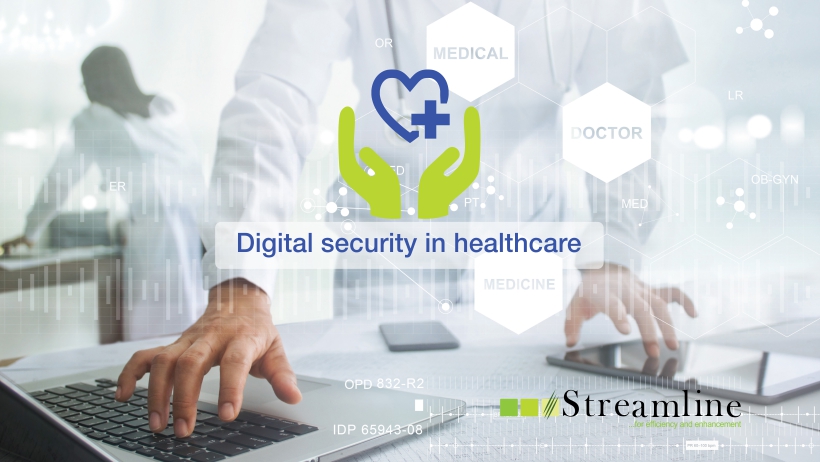There is nothing more important than your health, and there is nothing more private than your health care information. Imagine all of the personal information your health care provider has about you.
- Identifying details such as your home address and tax ID
- Even more sensitive information like your age weight their medical condition
- And what prescription drugs you are taking
This is exactly the kind of information that is valued by the bad actors on the internet. This is also the kind of information that is the responsibility of healthcare providers to protect.
What is healthcare businesses?
Health care businesses are companies, people, Institutions, agencies that deliver health care services to meet the healthcare needs of the populations.
- Clinical Services providers- Hospitals, Nursing and residential care facilities, Physicians Clinic, Outpatient care centres, Ambulatory Services and Diagnostic Labs
- Manufacture drugs and medical equipment’s
- Health care support services like medical insurance
All health care businesses converge on the singular purpose- to offer well-being by diagnosis, treatments, and prescriptions to their target audience. The baby-boomer generation is approaching retirement. The millennial and Gen Z generation are defining present-day healthcare needs. And there lies the paradigm shift for healthcare businesses.
What is the role of digital security in Health care?
Demand for on-the-go data accessibility creates more breach culprits. Telemedicine, Real-time data capturing medical devices, e-medical records, are some examples of digitalisation in healthcare.
Health care and pharmaceutical companies too are in the pursuit of efficient treatments, optimizing processes, quick recoveries, reducing the scope for human errors, and saving costs. Leveraging digital strategies to switch to amazing web and mobile experiences should be on your top priority list.
- 77% of your patients want to book appointments on their own schedule
- 28% of your recurring patients need you to work on preventive plans
- Virtual-reality simulations are highly effective in relieving chronic pain, anxiety, PTSD, and strokes
- Wearable medical devices and health apps for personalised care are trending choice in the digital age
- Predictive analysis with the help of big data can help you to timely prepare for flu outbreaks
Yet it is delayed for many health care providers for its complexity and challenges. Healthcare providers are uniquely vulnerable because they are typically not as advanced on their cybersecurity as on other verticals like finance.
Security and Compliance v.s Productivity and service- The paradox of Digitization in Health Care
Health care began transitioning to the digital era much later than the other verticals. As such healthcare is more susceptible to the health care attacks like distributed denial of service and ransomware attacks.
Care providers are stuck in an alarming and critical battle between Security and Compliance v.s. Productivity and Services.
Importance of Digital Security in Health care
Since 2010, over 2,550 data breaches have occurred with over 41 million patient records were breached in 2019 alone.
Medical records are high-value targets not just because of their sensitive nature but also for the purposes of identity theft. The medical records of the children are especially lucrative on the black market since the theft likely goes undetected until the child turns 18. Even worse is when medical identity theft is used to obtain medical care. Now the victim can no longer trust that his or her medical information is safe or know that they are receiving accurate medical care.
Some of the requirements the healthcare providers must follow in the event of a cyber-attack include:
- Have a contingency plan and execute it.
- Report the crime to local and federal authorities.
Challenges of implementing digital security
Healthcare is highly regulated, and understanding all the compliances is extremely tricky. Healthcare or health plan providers, and any entity that transmits health or patient information electronically must employ or consult with an expert on legal regulations.
- Being out of compliance can be very expensive. Fines can range from just $100 all the way to $1.5 million.
- Also, data breach means loss of customer trust, and it can cost you everything.
It is rational to be proactive rather than reactive when it comes to implementing cybersecurity in your organization.
15 Steps to build low-risk profile digital infrastructure in healthcare
Protecting access to the network is a must. Some basic considerations to develop immunity of IT security should also include:
- Build an Internet gateway firewall.
- Network address translation
- Virtual private network
- Access control lists
- Assign someone on staff to manage compliance on an ongoing bases
- In the event of a breach, determine if the actual breach of information has occurred
- If so, report to the law enforcement agency, immediately
- Report actual threat indications like methods used to conduct the attack, with federal agencies
- Notify the affected individuals within 60 days of the breach
- Next-generation security features should include a next-gen intrusion prevention system, malware protection, and application control.
- Web and URL filtering, as well as email/spam security, will help deter employees from being directed to and visiting malicious sites.
- Gateway and endpoint ant-virus is a must, and information access management or an access control system is highly recommended.
- Physical security should also be a part of a comprehensive cyber security standard.
- The facility should only be accessible to authorized personnel.
- Workstations and other relevant devices should be username and password protected, and IP security cameras should be installed to monitor employee or visitor activity.
Bottom Line:
Don’t make it easy for a cyber-attacker to access facilities protecting critical data can no longer be an afterthought for the healthcare industry. Streamline can ensure your infrastructure is secure and compliant.
